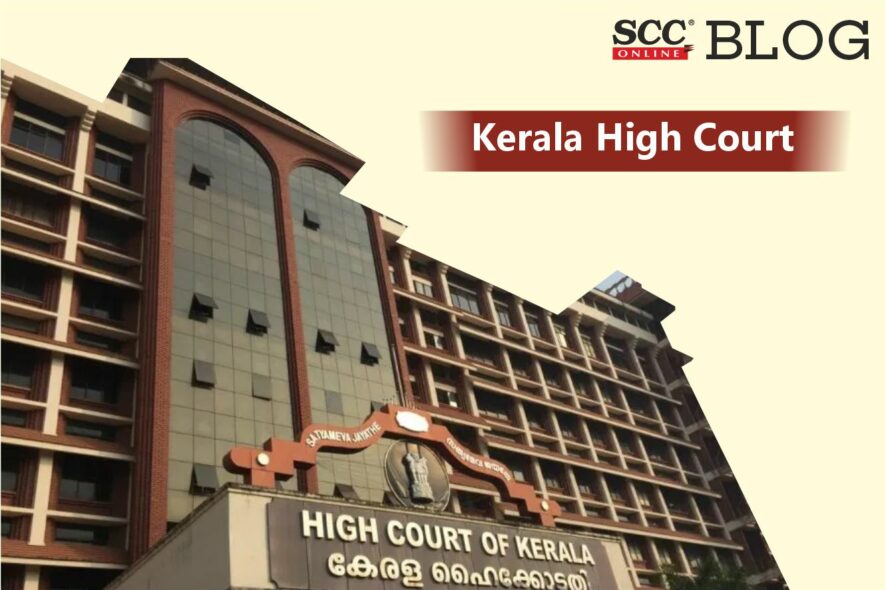Kerala High Court: In a case where an Indian man and a Canadian woman were unable to marry due to a mandatory requirement turning out to be a legally impossible task, as Canadian law neither requires nor provides for the issuance of non-objection and bachelorhood certificate, V.G.Arun, J., permitted the woman to submit an affidavit as to her single status, notarised by an Attorney in Canada instead.
The Court held that the diplomatic officers of the Indian Embassy in Canada are empowered to apostille affidavits and do notarial acts, which shall have the same effect as done by an authorised officer/attorney in India.
Petitioner 1, an Indian citizen, and petitioner 2, a Canadian citizen with an Overseas Citizen of India card had submitted a notice of intent to marriage along with the receipt to the Marriage Officer. Pursuant to this, an intimation was sent to the petitioners, requiring them to appear on 22-05-2022 for solemnisation of the marriage.
Meanwhile, petitioner 2 had to rush back to Canada at her employer's behest, therefore, she requested the Marriage Officer to permit her to appear through online mode. Since petitioner 2 is a Canadian citizen, a non-objection and bachelorhood certificate’ was required to be obtained from the Canadian Embassy in India to prove her single status.
However, Canadian law neither requires nor provides for the issuance of non-objection and bachelorhood certificate, therefore the Canadian Embassy expressed its inability to provide the same. Therefore, petitioner 2 approached the Court with the grievance that she could not be compelled to perform the impossible task of producing a bachelorhood certificate and should, in the alternative, be permitted to produce an affidavit as to her single status, notarised by an Attorney in Canada.
The issue before the Court was whether affidavits apostilled in a foreign country will be acceptable even if the foreign country is not a member of the Hague Apostille Convention, 1961. The Marriage Officer contended that Canada not being a member of the Hague Convention, the affidavit of petitioner 2, even if apostilled by a Notary in Canada, cannot be accepted.
The Court noted that the Hague Apostille Convention of 1961 is an international treaty creating a unified process for confirming the authenticity of documents and for recognising the documents of other participating countries, however, Canada not being a participant to the Hague Convention, the apostille on documents executed in Canada or its Embassy in India will not be acceptable in India.
Another option before the petitioners was to rely on the Notaries Act, 1952 if Canada was one among the countries notified under Section 14 of the Notaries Act. Inasmuch as Canada is not a notified country, the Court opined that the petitioners will have to depend upon Section 3 of the Diplomatic and Consular Officers (Oaths and Fees) Act, 1948 which enables the administration of oaths by diplomatic and consular officers for a prescribed fee.
The legal validity of administration of oaths by diplomatic officers under Section 5 of the Act, 1948 had been dealt with in K.K. Ray (Private) Ltd., In re, 1967 SCC OnLine Cal 19, which had been reiterated in Elizabeth Rajan v. Inspector General of Registration, (2022) 2 Mad LJ 321.
Hence, the Court held that the Act, 1948 empowers diplomatic or consular officers, exercising functions in any foreign country to administer oath, take affidavits and do notarial acts which any notary public may do within that State. Such oath, affidavit and notarial act administered, sworn or done by or before any such diplomatic officer shall be effectual as if duly administered, sworn or done by or before any lawful authority in the State. Therefore, the Court permitted petitioner 2 to produce an affidavit duly attested/notarised in the manner provided in Section 3, in lieu of the ‘non-objection and bachelorhood certificate’ and directed the Marriage Officer to accept the same. The writ petition was disposed of with the directions that if the duly attested affidavit is submitted by petitioner 2, the marriage shall be solemnised, by permitting her to appear through online mode, subject to the following conditions:
-
The witnesses required for solemnization of marriage shall be present before the Marriage Officer.
-
The witnesses shall identify the parties who are online.
-
The copies of passport or any other public document, in respect of the party who is appearing online, shall be provided to the Marriage Officer for the purpose of identification.
-
Wherever signature of parties is required, that shall be affixed by the authorised Power of Attorney of the party appearing online.
Additionally, the Court directed that on solemnisation of marriage, the certificate of marriage shall be issued in the manner referred to in Section 13 of the Special Marriages Act. Since the period for solemnisation stipulated in the Special Marriage Act was due to get over by 18-07-2022, the Court extended the same by a period of one month from receipt of a copy of the judgment.
[Shan S v. Marriage Officer, 2022 SCC OnLine Ker 3792, decided on 15-07-2022]
Advocates who appeared in this case :
R.V.Sreejith, Advocate, for the Petitioners;
Advocate General, for the Respondent;
P. S. Appu – GP, Shyam Padman, Laya Mary Joseph, Advocate, Others Present.
*Kamini Sharma, Editorial Assistant has put this report together






